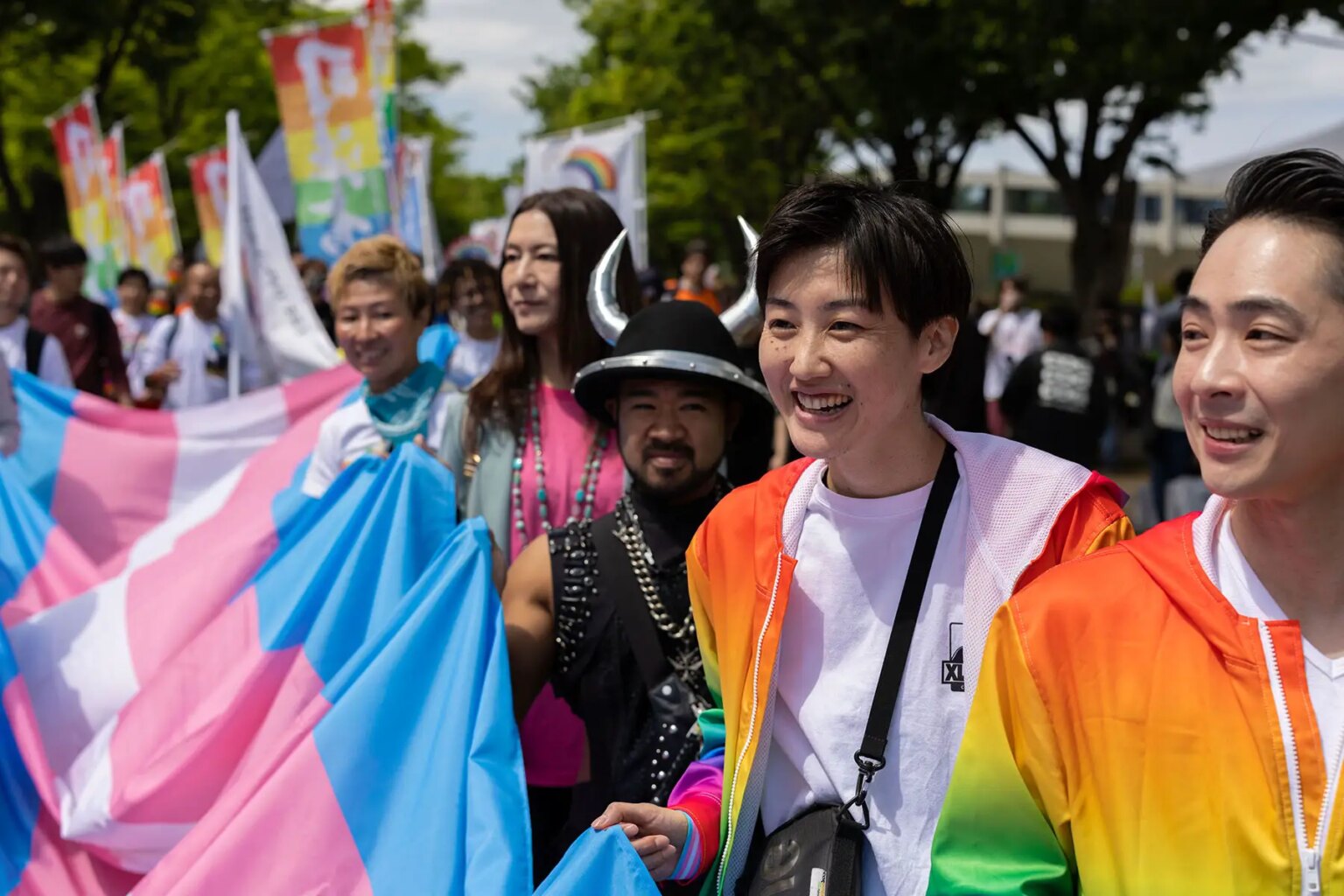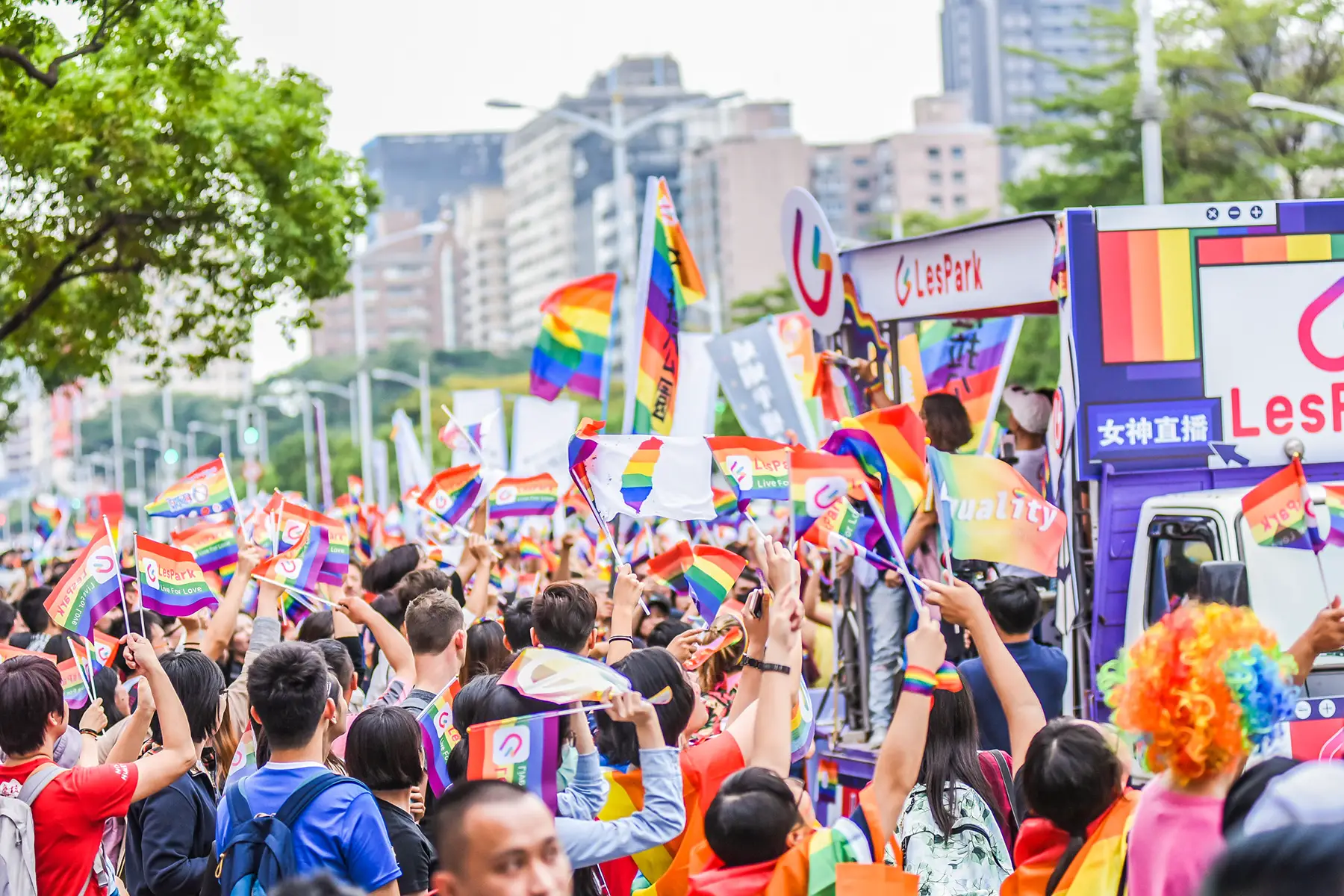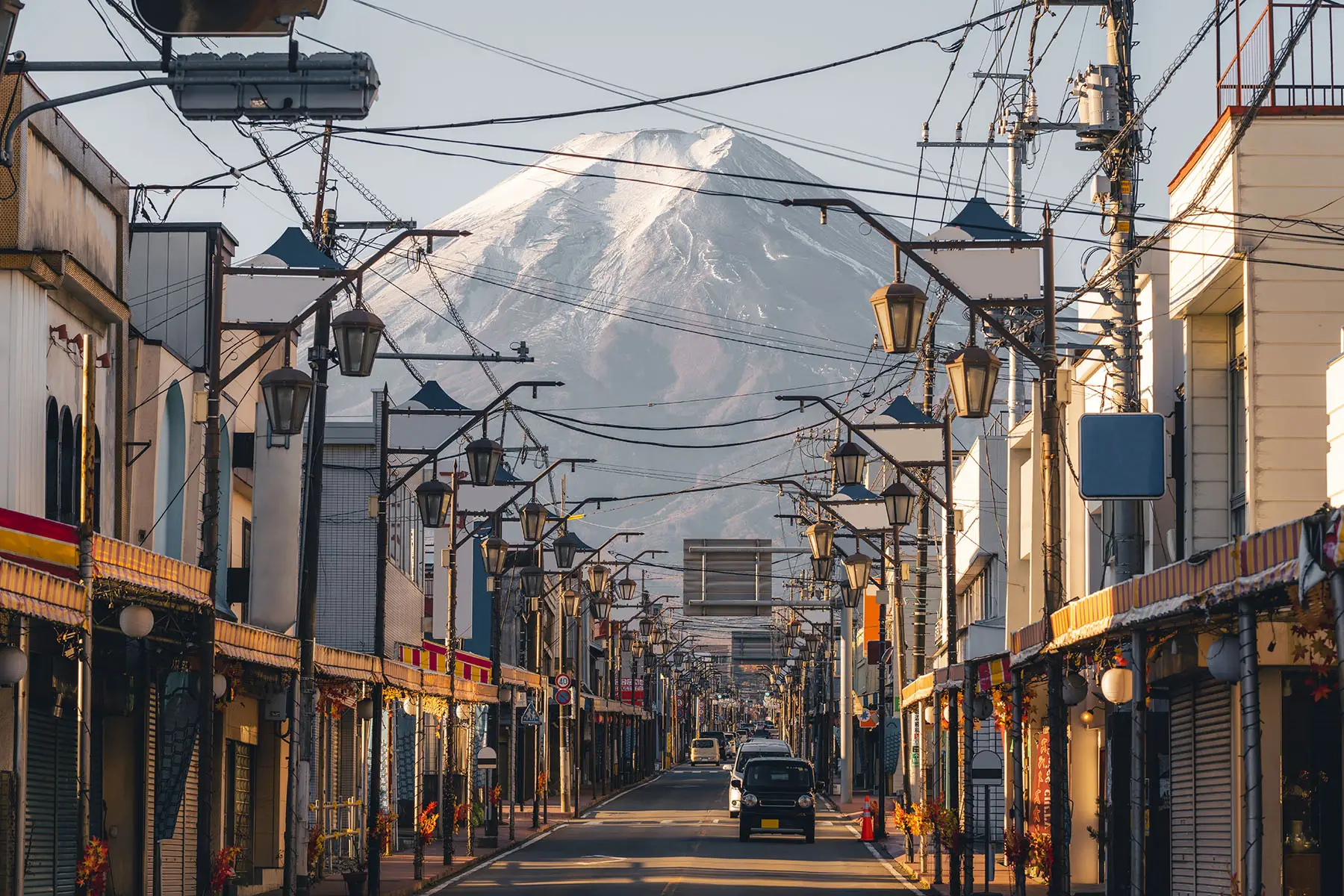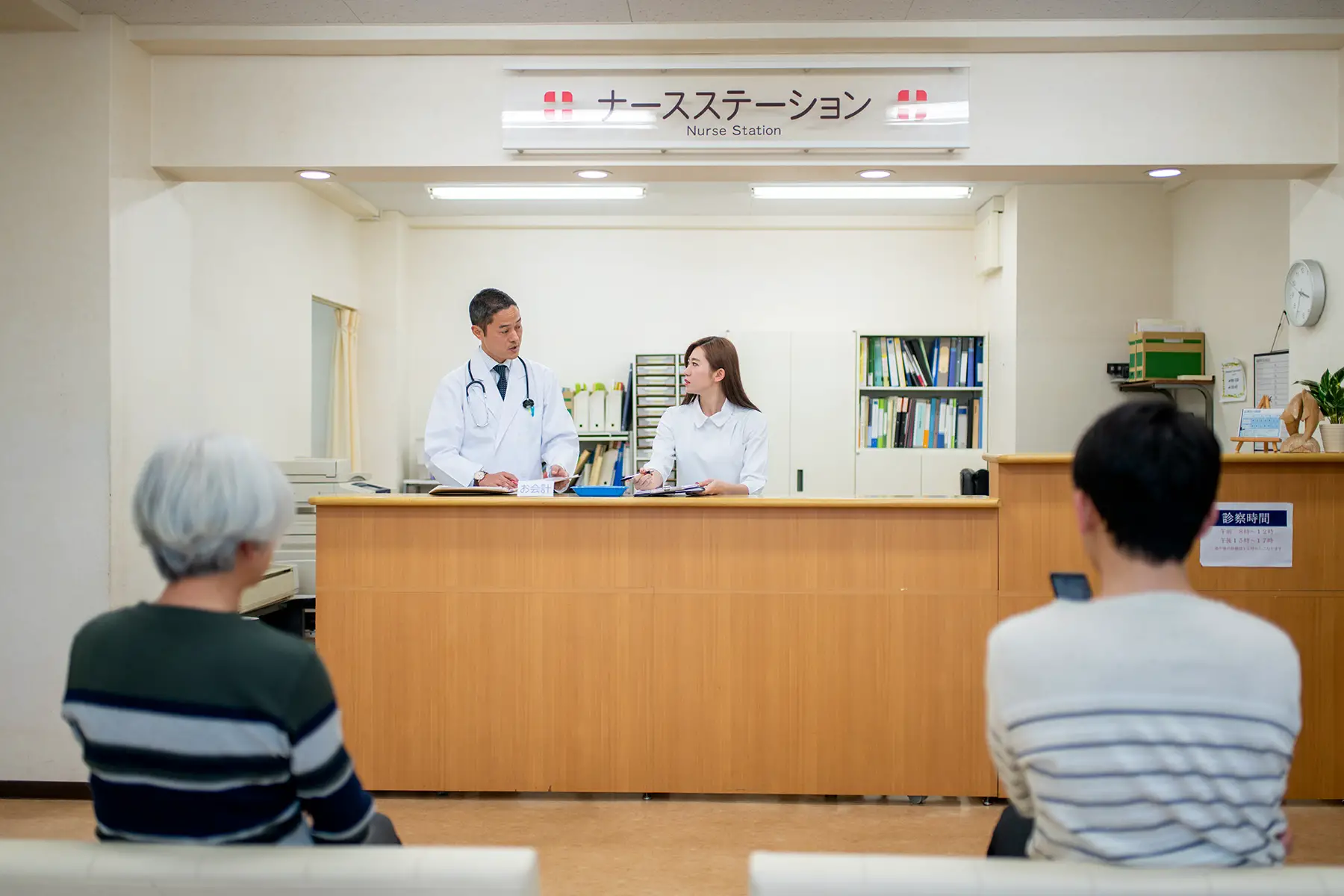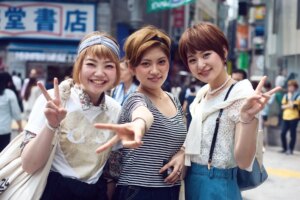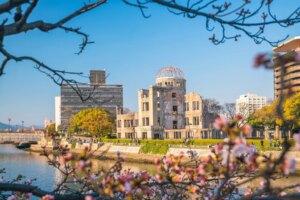Japan mostly supports the lesbian, gay, bisexual, transgender, and queer (LGBTQ+) community and considers gender identity and sexual orientation as part of someone’s personality.
However, sexual otherness is also considered a private matter, and Japanese legislation toward the LGBTQ+ is more conservative. For instance, Japan is the only nation in the Group of 7 (G7) that does not allow same-sex marriages (同性婚) or civil unions. It also bans same-sex adoption.
The country’s insufficient anti-discrimination legislation also means that the LGBT+ community remains disadvantaged when it comes to basic human rights.
Continue reading for more information on the following:
- LGBT+ rights in Japan
- LGBTQ+ family and parenting rights in Japan
- Discrimination against LGBT+ people in Japan
- Violence and hate crimes against LGBT+
- Gender identity in Japan
- Public attitudes towards LGBTQ+ in Japan
- LGBT+ scene in Japan
- LGBT+ representation in arts, media, and sports
- LGBT+ rights movement in Japan
- Useful resources
Ground News
Get every side of the story with Ground News, the biggest source for breaking news around the world. This news aggregator lets you compare reporting on the same stories. Use data-driven media bias ratings to uncover political leanings and get the full picture. Stay informed on stories that matter with Ground News.
LGBT+ rights in Japan
With the third-highest gross domestic product (GDP) in the world, Japan is one of the most economically developed nations in existence. Unexpectedly from a country of this economic stature, it lags a lot behind other comparative countries when it comes to LGBT+ rights (LGBT+の権利).
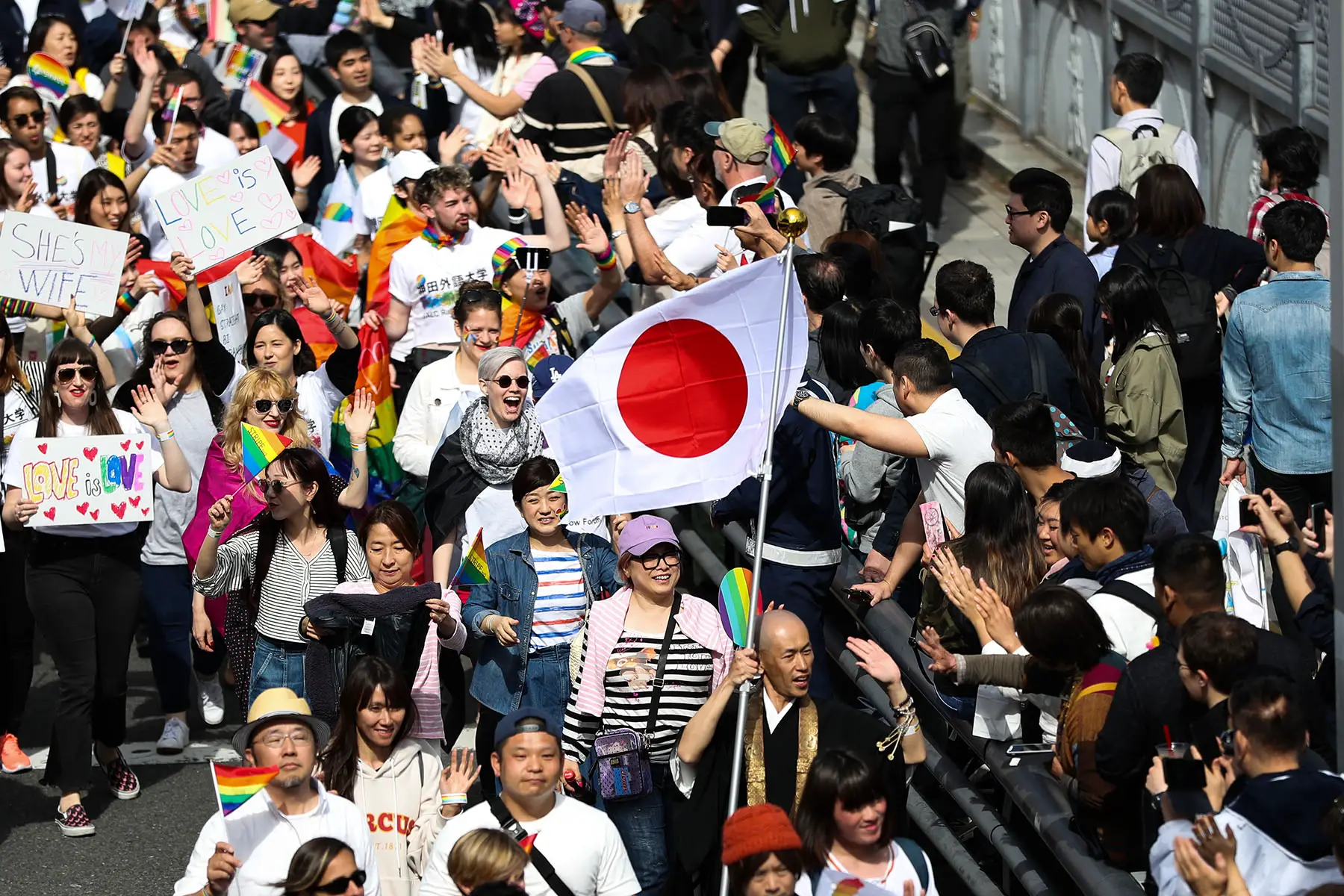
In terms of global rankings of LGBTQ+ rights, the country is very much a middle performer:
- Placed 44th out of 197 nations on the 2023 LGBT Equality Index – which measures LGBT+ rights, laws, and freedoms, as well as public attitudes toward the LGBT community
- On 62nd place out of 202 countries on the 2023 Spartacus Gay Travel Index – which measures the legal situation and living conditions of members of the queer community
- Placed 73rd out of 203 nations on the 2023 LGBT+ Travel Safety Index – listing the worst and safest countries to travel in or through as an LGBT+ person
Although Japan decriminalized homosexuality back in 1881, it could still strengthen its legislation to protect its LGBTQ+ community from discrimination. For example, transgender people (トランスジェンダー) can only change their gender if they undergo psychiatric evaluation and sterilization, and the country does not officially recognize non-binary people (ノンバイナリー).
Moreover, Japan has yet to legalize same-sex marriage, despite around 78.4% of the population supporting this basic right in 2019.
According to a 2020 survey by Japan’s largest advertising agency Dentsu, 8.9% of the population identifies as LGBT+. This is slightly below the global average of 9% in 2023.
A mere 0.6% identify as transgender, and 1.2% would describe themselves as non-binary (also known as X-gender – Xジェンダー). This is also below the global average (a combined 3%).
LGBTQ+ family and parenting rights in Japan
Same-sex marriage in Japan
Despite growing societal support and international pressure, same-sex marriage or civil unions are illegal in Japan.
For a brief moment in 2021, it seemed this could change. A ruling in Sapporo said the government’s rejection of same-sex marriage was unconstitutional. Hopes were squashed, however, when an Osaka district court ruled in 2022 that the Constitution explicitly stated marriage was between two opposite parties.
Two years later, in March 2024, the Japanese high court ruled that the ban was indeed unconstitutional. It is unclear yet how the government will respond.
Still, large parts of Japan do officially recognize same-sex partnerships (パートナーシップ宣誓制度), which allow LGBT+ couples to register their relationship and access certain rights. These include rights in areas such as housing and healthcare (e.g., hospital visitation rights or receiving surgery results).
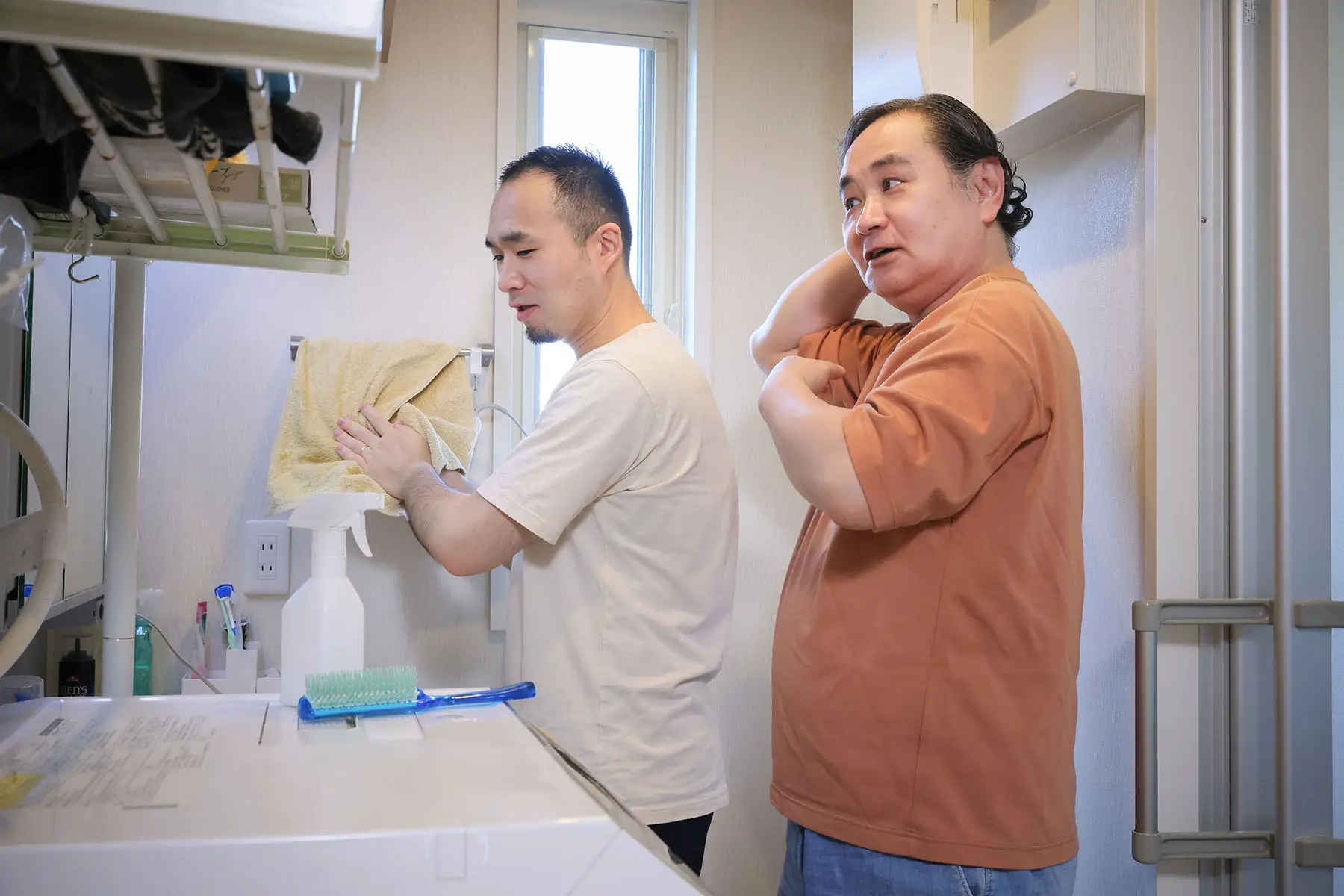
Although this partnership system is a step in the right direction, the certificate is not legally binding. As such, institutes do not have a legal obligation to recognize the partnership.
At the start of 2023, there were 10 prefectures and more than 250 municipalities that recognize same-sex partnerships, including the prefectures of:
- Akita (秋田県)
- Aomori (青森県)
- Fukuoka (福岡県)
- Gumma (群馬県)
- Ibaraki (茨城県)
- Mie (三重県)
- Osaka (大阪府)
- Saga (佐賀県)
- Tochigi (栃木県)
- Tokyo (東京都)
In May of 2023, the prefectures of Shizuoka (静岡県) and Toyama (富山県) joined this list.
LGBT+ fertility treatment in Japan
There is currently no legislation that explicitly outlaws anonymous sperm or egg-cell donation or access to fertility treatments. However, that does not mean the LGBT+ community can easily conceive using a third party, either. Especially considering that only a few medical facilities nationwide provide fertility assistance for lesbian and transgender couples.
Official medical guidelines from the Japan Society of Obstetrics and Gynaecology (JSOG – 日本産科婦人科学会) reserve fertility treatments, such as artificial insemination, for married couples only. Currently, these guidelines are non-binding, but carry enough weight that only a few doctors defy them to accommodate lesbians and single women.
Furthermore, in 2022, the Japanese government proposed a new law that would make the JSOG guidelines legally binding, which would restrict access for single women and LGBTQ+ couples. The Human Rights Watch (HRW – ヒューマン・ライツ・ウォッチ) flagged it as a breach of rights.
As such, would-be-parents often have to look for other solutions like finding donor sperm on the black market and doing artificial insemination without medical support. And, if the same-sex couple manages to have a successful pregnancy, they may face some discrimination when trying to access maternity services.
LGBT+ adoption in Japan
According to Japanese law, only married couples can adopt children. As gay marriage is still illegal, same-sex couples cannot adopt either.
Controversially, if you are transgender and your partner is of the opposite sex, you can adopt a child. Therefore, Japan’s legislation on adoption (養子縁組) seems to specifically target same-sex parents. This is in stark opposite of people’s opinions, interestingly, as around 68% of the population approve of same-sex adoption.
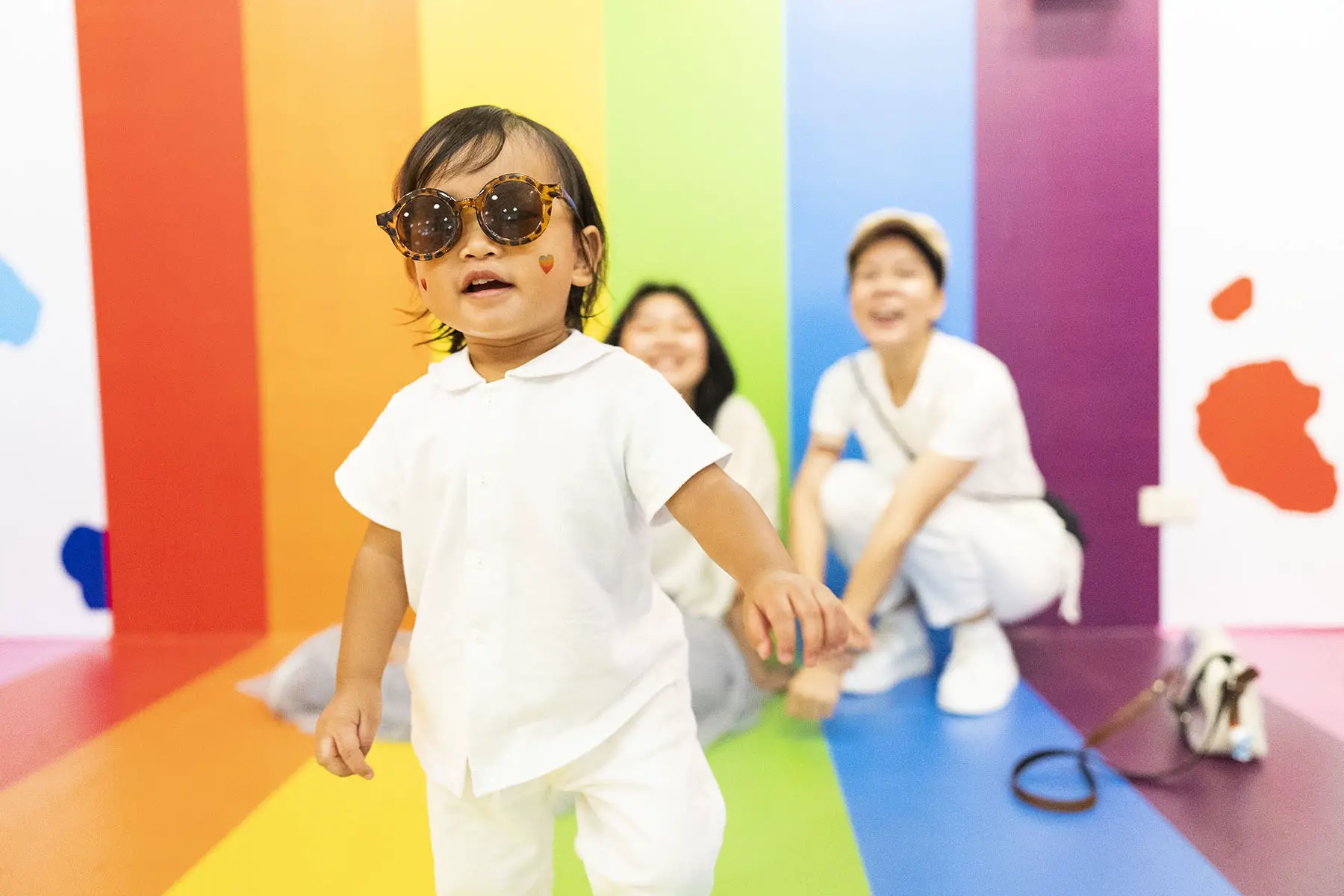
One option for LGBTQ+ couples wanting to raise a child is to become a foster parent. The main requirement for fostering a child is that you complete foster parent training.
The child must also not become financially destitute. That said, only a limited number of same-sex couples have been approved for fostering since 2016.
Transgender parents in Japan
Although Japanese legislation seems to target same-sex couples specifically, transgender parents are also under fire. In 2022, the Tokyo High Court denied a transwoman her parent right to be recognized as the parent of her biological child after she legally changed her gender.
Before transitioning, the woman and her female partner had conceived two children using her own sperm. One child was born before, and one child was born after the transition. The court would not acknowledge her parenthood of the second child, as her partner had given birth, and the child could only have one mother.
Discrimination against LGBT+ people in Japan
Like most other self-respecting countries, Japan has signed the UN mandate protecting LGBT+ and other sexual minorities from violence and discrimination based on sexual orientation and gender identity.
Likewise, the Japanese Constitution promises “equal rights to all,” which extends to the queer community as well.
Conversely, the country doesn’t have anti-discrimination legislation that expressly covers LGBTQ+ people. For example:
- Active homosexual men have a six-month deferral before they can donate blood
- No ban on conversion therapy
- There is no protection against housing discrimination
On a local level, however, more and more cities and prefectures are implementing their own protective laws. Tokyo, for example, has had anti-LGBT discrimination laws in place since 2018.
HRW Japan has been campaigning for the Japanese government to introduce sufficient legislation since before the 2020 Summer Olympics took place in Tokyo. However, a proposed Equality Act failed to get enough votes before the games took place in the summer of 2021.
In 2023, the discussion heated up again when Japan was set to host the May G-7 summit, with international pressure calling for reform. To date, little to no result has come of this.
LGBT+ discrimination in employment in Japan
In theory, LGBTQ+ employees have the same access to jobs at the same rates of pay as the rest of the Japanese population.

In practice, however, they continue to face discrimination in the workplace. Around half of LGBT+ workers reported experiencing difficulties in their job in a 2017 study by Amnesty International, and just over 40% discloses their queer identity in the workplace. In smaller cities, that percentage drops to 30.5%.
The same study found that around 38% of transgender people felt unable to freely dress or express themselves in accordance with their gender identity. And with good reason. In 2022, a harassment case came to light in which a supervisor repeatedly refused to use female pronouns to address a trans woman.
Although she won the case, Japanese labor law is still lacking in this area. The Labor Standards Act doesn’t mention sexuality in its anti-discrimination text, and only outlaws differential treatment based on nationality, creed, social status, and gender. The Equal Opportunities in Employment Act was amended in 2019 to protect LGBT+ employees against harassment in the workplace.
Around 40% of major Japanese companies have introduced LGBTQ+ measures in the workplace and a number of municipalities have made moves to tackle discrimination against LGBT+ employees in the public sector.
LGBT+ discrimination in housing in Japan
Japan does not have housing laws that explicitly offer protection against discrimination towards same-sex couples. In 2012, the government removed the clause from the Basic Act for Housing that entitled only heterosexual couples to social housing. However, most local public accommodation is controlled by municipalities and many still discriminate against LGBTQ+ looking to rent.
Things are worse in the private sector, with many landlords and agents refusing to rent to queer tenants. Same-sex couples face similar obstacles when looking to buy property, as many mortgage providers will provide joint mortgages to legally married couples only.
LGBT+ couples looking to take a vacation are also careworn. In 2018, the Ministry of Health, Labor, and Welfare (MHLW – 厚生労働省) issued a directive to Japanese hotels to stop their discrimination against same-sex couples. However, there are still many hotels and guesthouses that refuse to accept LGBT+ couples.
For queer-friendly hotels in Japan, you can visit Misterb&b. Housing organizations and estate agents that provide support and services to the LGBTQ+ community include Suumo and IRIS.
LGBT+ discrimination in education in Japan
Japan lacks sufficient sex education in its school curriculum, including teaching young people about sexuality and gender identity.
The official school instructions from the Ministry of Education, Culture, Sports, Science, and Technology (MEXT) (文部科学省) even explicitly state that during puberty “young people develop an interest in the opposite sex.”
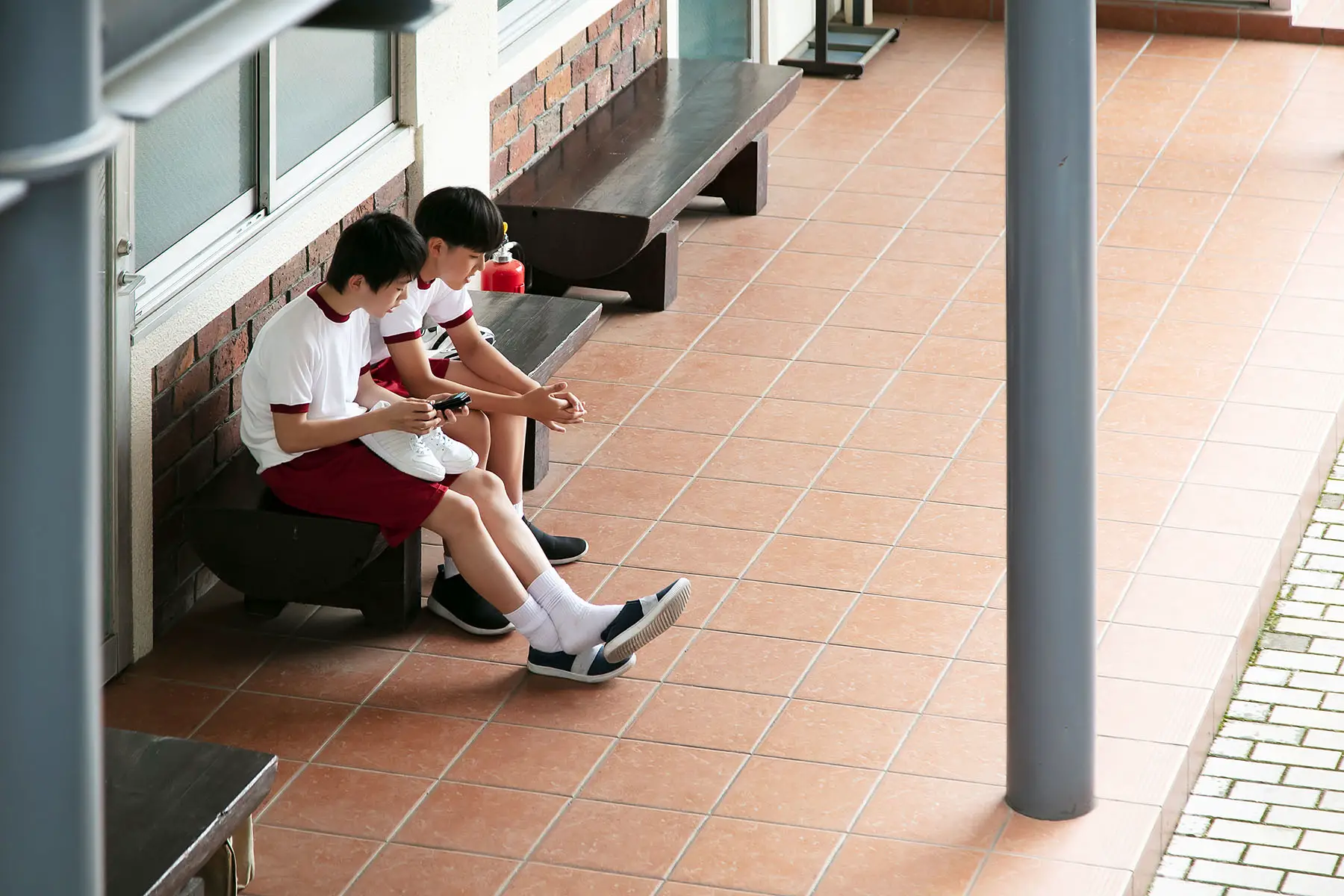
One survey found that only 11% of teachers in Japanese schools have discussed LGBTQ+ issues. Diversity in gender and sexual orientation wasn’t even mentioned in school textbooks until 2017.
Anti-discrimination measures against students also leave much to be desired. According to a 2016 study (in Japanese) commissioned by MEXT, 60% of LGBT+ pupils have reported experiencing bullying at school. Following the release of a 2016 report by HRW Japan, the government added sexual orientation to its anti-bullying policy in 2017.
LGBT+ discrimination in healthcare in Japan
The public healthcare system offers universal medical care to Japanese citizens and long-term residents, including LGBTQ+ patients. However, there is a lack of LGBT+ services or medical professionals with expertise on queer issues in Japan. An Amnesty report in 2021 found that Japanese health professionals often make discriminatory remarks to LGBT+ patients without even noticing.
Mental health is a big issue in Japan and the suicide rate among the queer community in the country is higher than average. Many have reported not feeling comfortable disclosing their sexual identity when accessing mental health support as they don’t feel it will be accepted.
Although gender-affirming surgery is available in Japan, transgender people can not always access it as public health insurance doesn’t always cover the full costs.
Stonewall Japan has put together a list of resources for mental health and resources for sexual health to support LGBTQ+ people in Japan.
LGBT+ discrimination in the military in Japan
Instead of a military, Japan has a Self Defence Force (JSDF – 自衛隊). Since its establishment in 1947, there has been no ban on LGBT+ people serving in the forces.
However, in 2023, reports of bullying, intimidation, and (sexual) violence came to light, with over 1,400 people submitting their own allegations. Although these incidents did not specifically mention targeting LGBTQ+ people, with one in 11 people identifying as such, it must be assumed that there are queer victims among these reports as well.
Violence and hate crimes against LGBT+
Over 38% of LGBT+ in Japan have been sexually harassed or assaulted according to a 2020 study. Many more cases likely remain unknown as police and counseling centers sometimes refuse to help and there is a lack of proper support for LGBTQ+ survivors.
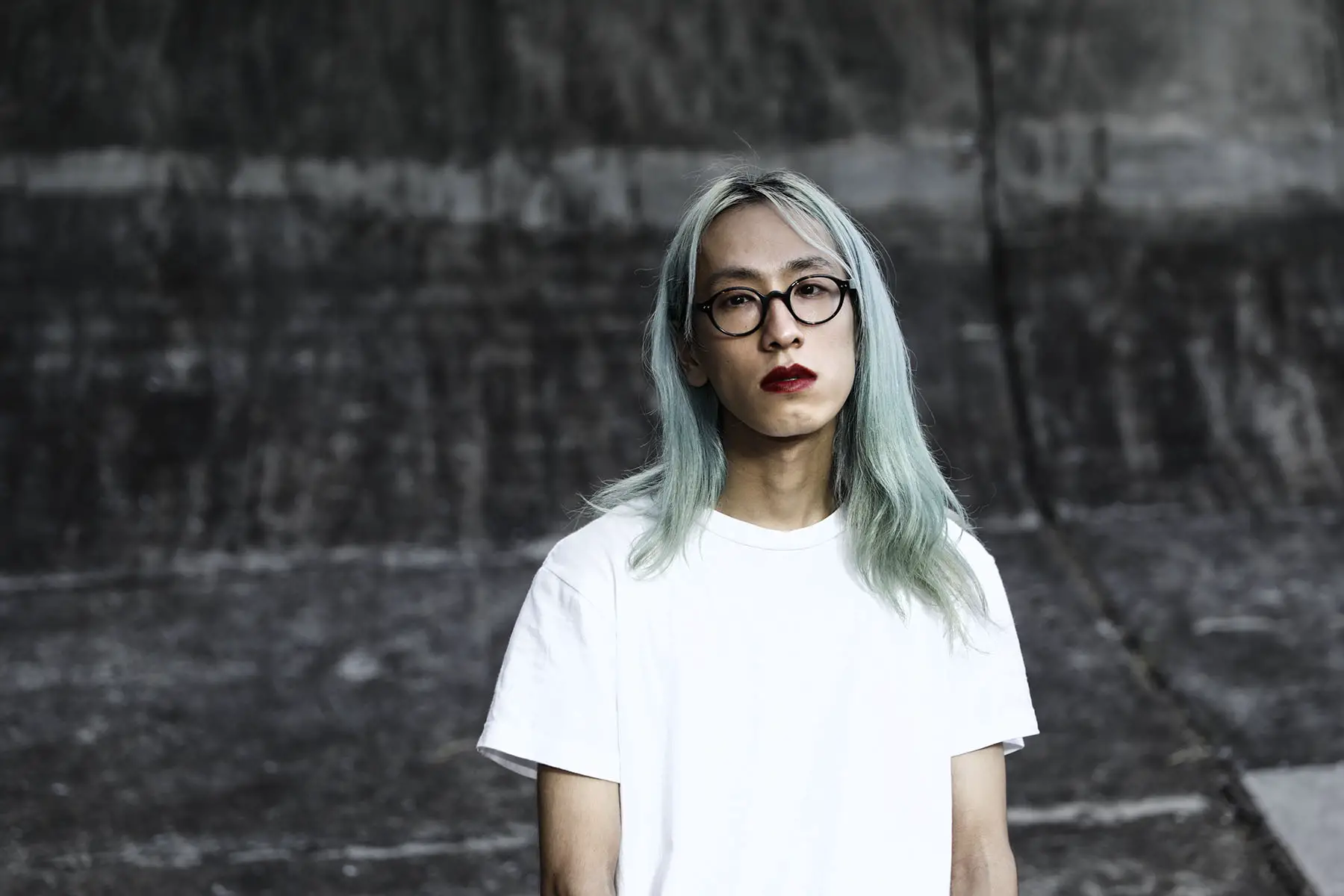
There are no laws in place to protect the LGBT+ community from violence or hate crimes. Likewise, the 2016 Anti-discrimination Speech Act, often referred to as the Hate Speech Act, only covers migrants and minorities in Japan.
Gender identity in Japan
The country doesn’t legally recognize non-binary gender terms, meaning everyone must be categorized as either male or female on official forms. Yokosuka (横須賀) is the only city in Japan to acknowledge additional genders on official documentation.
Approximately 1.8% of the Japanese population identifies as transgender or non-binary. Although gender-affirming surgery is available, you must first undergo psychiatric evaluation and sterilization.
Other requirements include:
- Be at least 20 years of age
- Have been surgically sterilized
- Have no children under the age of 20
- Receive a diagnosis of Gender Identity Disorder (GID) from a medical professional
Many international organizations have called Japan’s gender identity law archaic and contrary to international human rights law and medical best practices because it involves an irreversible procedure and, by requiring a GID diagnosis, classifies transgender people as mentally ill.
Since 2018, surgery costs have become partly funded through public health insurance, although this remains limited.
Gender-neutral pronouns in Japan
The Japanese language is structured differently from English and most Indo-European languages. There are no gendered pronouns to refer to people in the third person (e.g., “he” or “she”), and limited gendered terms when using first-person language. However, there is evidence of masculine and feminine Japanese language.
The culture and language blog Tofugu gives a good overview of using the Japanese language from an LGBT+ or non-binary perspective.
Public attitudes towards LGBTQ+ in Japan
When it comes to public acceptance, Japan scores above many neighboring countries in East Asia and the Pacific (though below many others in Europe or North America).
According to 2019 research by the nonpartisan fact tank Pew Research Center, 68% of Japanese say homosexuality is socially acceptable (compared to an Asia/Pacific average of 56%). This view is much more prominent among younger age groups.
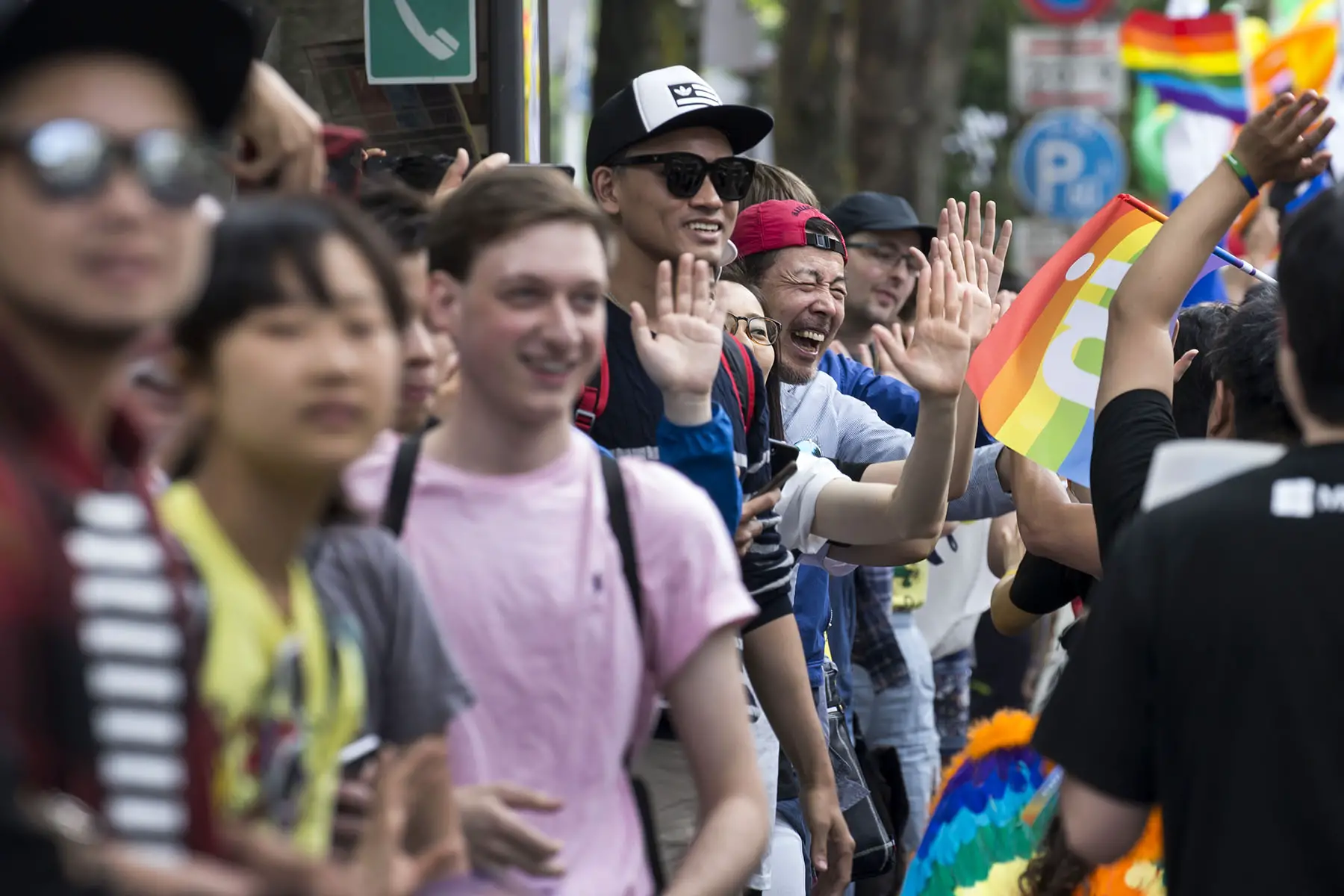
The 2021 LGBT+ Pride Global Survey by market research and consulting firm IPSOS found that:
- Around 69% support legal recognition of same-sex unions such as marriage (same as the global average of 69%)
- A little less than 70% supports the right for same-sex couples to adopt (compared to the global average of 61%)
- Roughly 35% support openness around sexual orientation and 27% are in favor of public displays of affection among LGBT+ people (global averages are 51% and 37% respectively)
- Just over half of the population (52%) supports anti-LGBTQ+ discrimination laws (compared to the global average of 55%)
This study also discovered that Japanese people generally had much less exposure to, or engagement with, the LGBT+ community than the global average.
Although a little outdated, a collaborative study (2016) by IPSOS and the research center Williams Institute on public attitudes toward transgender people ranked Japan 17th out of 23 countries. It found that:
- Around 53% of the population supported the right of transgender people to adopt
- Just under 56% of people supported the ability to legally change a gender
- Roughly 46% believed that being transgender is a natural occurrence
- Under 52% supported anti-transgender-discrimination laws
LGBT+ scene in Japan
Although attitudes are shifting, LGBTQ+ people in rural areas are often forced to live a closeted life. Many are forced to hide their existence for their own safety.
In more urban areas, however, the LGBT+ scene is starting to move above ground. Tokyo has by far the best LGBT-friendly districts (e.g., Ni-Chome Shinjuku) where you can party the night away at a gay bar or nightclub. The capital also has annual celebrations, such as Tokyo Pride and the Rainbow Reel Tokyo.
Other big cities in Japan offer LGBT-friendly lifestyle opportunities on a smaller scale, including Osaka, Kyoto, and Hiroshima. Websites like Queer In The World and Travel Gay can offer a good overview of LGBT-friendly cities in Japan.
LGBT+ representation in arts, media, and sports
As everywhere else, LGBTQ+ people have historically been marginalized and misrepresented in Japanese arts and media.
Until a couple of decades ago, queer characters were seldom seen in the mainstream, and if they were, they were often caricatured. One popular stereotype has been the camp gay man who is overtly feminine and flamboyant.
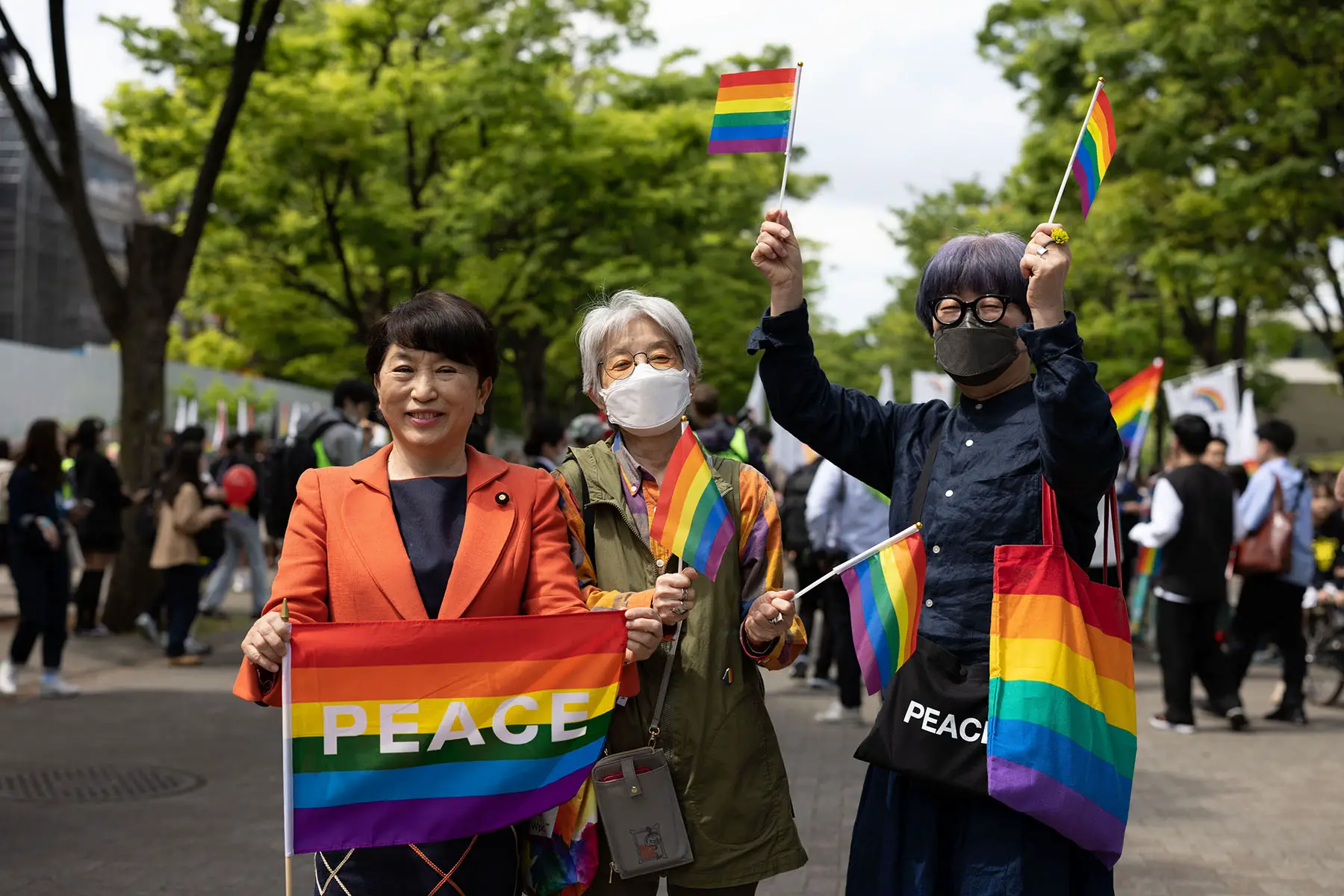
A change came in the mid-2000s when Japanese manga, anime (both comic art mediums), and video games put LGBT+ characters front and center. While still using stereotypes, these characters didn’t feature their queer identity as a defining feature of their character, but rather, a part of who they are.
As a consequence, LGBT+ representation in literary and cinematic forums has become more realistic in recent years. Although progress has been slow and small, TV series and movies are starting to feature more realistic characters who deal with true-to-life issues, and big-name brands such as Panasonic and Uniqlo have used LGBTQ+ models in their campaigns.
Famous LGBT+ people in Japan include:
- Haruna Ai (はるな 愛) – TV personality, singer, and business entrepreneur
- Ishikawa Taiga (石川 大我) – first openly gay Japanese Member of Parliament
- Kaede Sari Hatashima (畑島 楓/サリー楓) – architect, model, and activist
- Kamikawa Aya (上川 あや) – first openly transgender woman to win elected office
- Matsuko Deluxe (マツコ・デラックス) – columnist, essayist, and TV personality
- Mitsuya Yūji (三ツ矢 雄二) – actor, voice actor, and director
- Murakami Airi (村上愛梨) – professional rugby player
- Nakamura Ataru (中村 中) – singer, songwriter, composer, and actor
- Shimoyada Shiho (下山田 志帆) – professional football player
- Takahashi Mutsuo (高橋 睦郎) – poet, essayist, and writer
There are also many celebrities in Japan who openly support the LGBT+ community. LGBTQ+ allies include movie actor Miyazawa Hio (宮沢氷魚) and singer Nakashima Mika (中島 美嘉).
LGBT+ rights movement in Japan
Groups and organizations working to offer support to Japan’s LGBT+ communities and improve their rights include:
- Chosen Family Shobara (チョーズン ファミリー ショウバラ)
- Fruits in Suits Japan (フルーツ・イン・スーツ)
- Good Aging Yells (グッド・エイジング・エールズ)
- Japan Alliance for LGBT Legislation (J-ALL) (LGBT法連合会)
- Lawyers for LGBT & Allies Network (LGBTとアライのための法律家ネットワーク)
- Nijiiro Diversity (虹色ダイバーシテ)
- OCCUR (アカー)
- Pride House Tokyo (プライドハウス東京)
- ReBit (リビット)
- Stonewall Japan (ストーンウォール・ジャパン)
Useful resources
- LGBT+ Equality Index – measures LGBTQ+ equality and rights worldwide
- LGBT+ Travel Safety Index – assesses how safe it is for LGBTQ+ people to travel to countries worldwide
